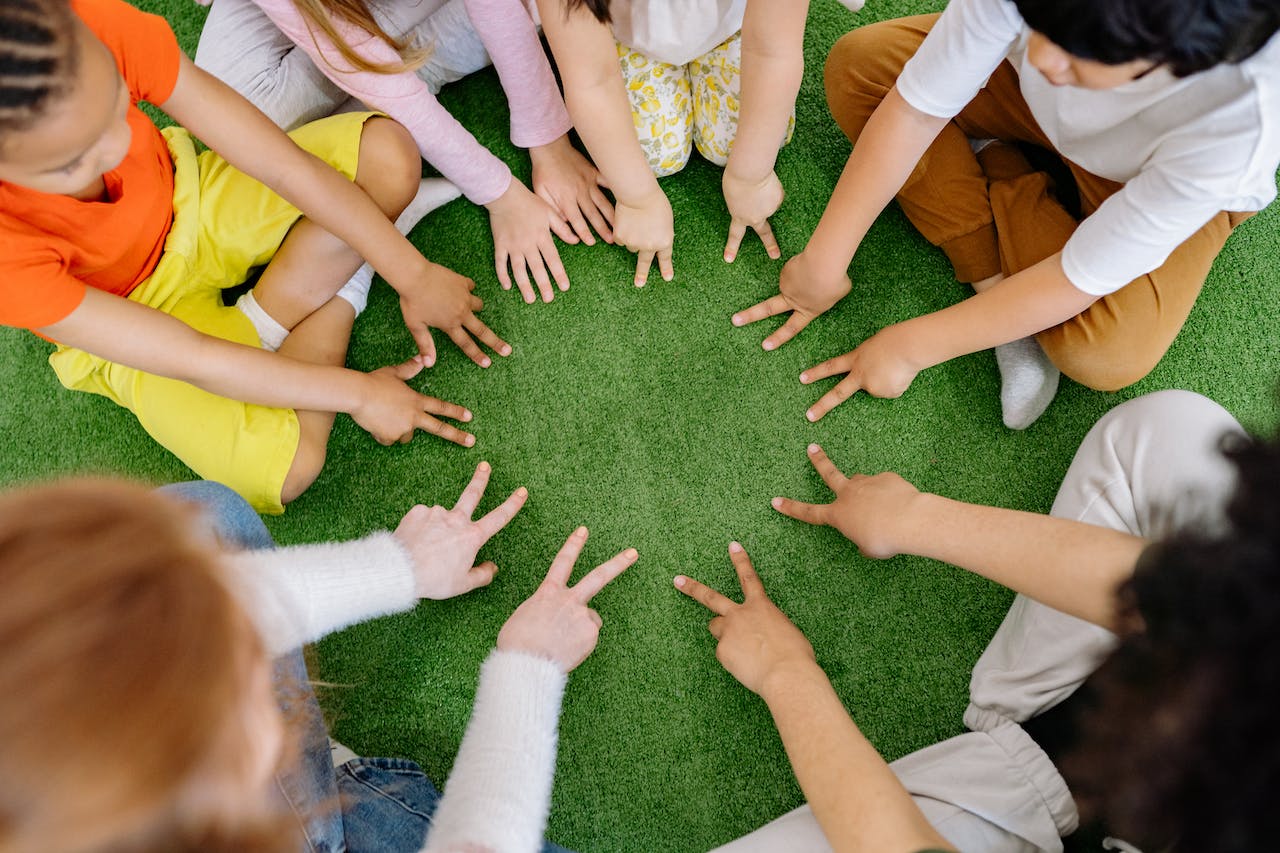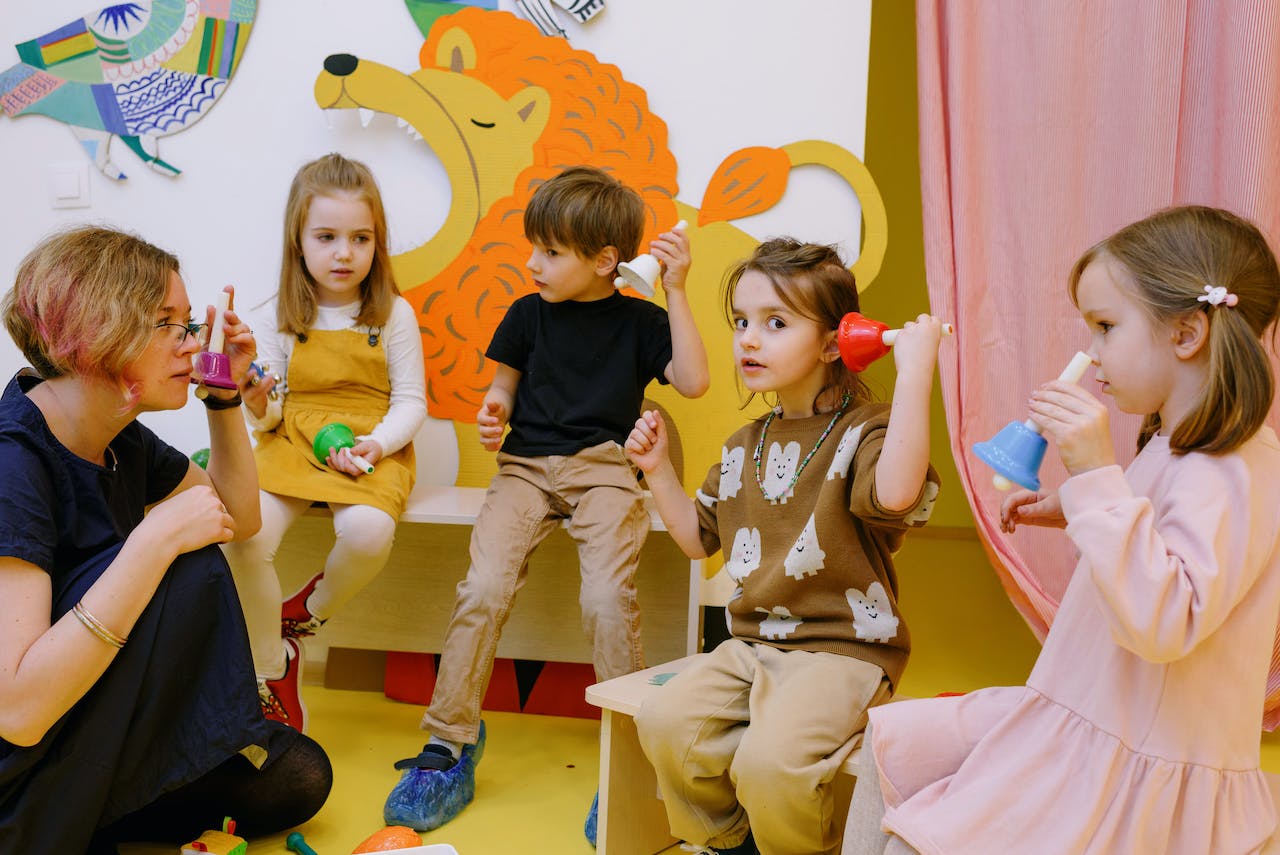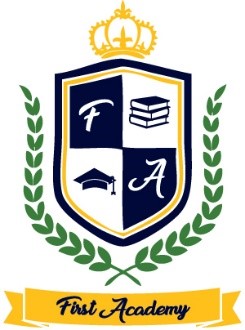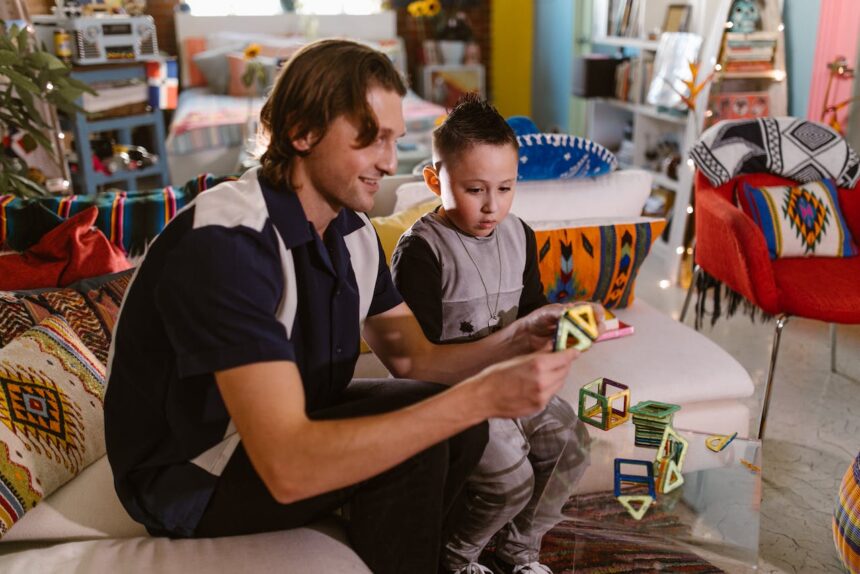What sets Montessori Education apart from traditional approaches?
Think of a classroom where children explore, learn, and grow at their own pace, guided by their innate curiosity and an environment designed to foster their individuality.
That’s the essence of Montessori Education and our commitment at First Academy.
Join us to discover why it’s considered one of the best educational methods.
Montessori Teaching: The Preferred Educational Method
The Montessori educational way is highly favoured by parents and teachers around the globe.
Why? It’s simple:
- It highlights learning by doing.
- One-on-one teaching is key.
- It cultivates a caring atmosphere.
- A child’s innate skills and likes are nurtured.
- Self-motivated creativity and discovery are promoted.
More so, the Montessori method embraces each child’s unique needs and curiosities. This ignites independent thinking. It fosters a passion for education. As a result, they thrive academically and emotionally.

Key Elements of the Montessori Method
The Montessori learning technique is famous for its unique educational style. It is based on the belief that every child naturally desires to explore and comprehend the world.
The American Montessori Society (AMS) and the Association Montessori Internationale (AMI) have identified seven key components that outline this teaching approach.
Child-Centred Approach
The Montessori Method puts the kid at the heart of learning. Every child is special. Each child has unique skills, hobbies, and progression rates. In a Montessori classroom, educators become guides. They track the child’s advancement and adjust the teaching surroundings. They do this to suit the child’s personal requirements.
Prepared Environment
A Montessori classroom is carefully built for kids to explore. It fuels their free spirit and love of learning. The room is filled with Montessori materials. These materials are suitable for different ages and encourage hands-on experiences. They promote the development of critical thinking skills. They also foster problem-solving skills. Also, they help develop practical life skills.
Mixed Age Groups
In a Montessori class, kids of varied ages collaborate in a peaceful, team-based atmosphere. The older ones guide and advise, while the younger ones learn by observing and imitating their peers. This age blend encourages teamwork, understanding, and social development. Learn more about First Academy programs.
Uninterrupted Work Periods
The Montessori approach highlights having unbroken time chunks for kids to fully immerse in their preferred tasks. In these sessions, kids get to do what they want and chase their passions at their own speed. This nurtures a deep focus, a sharp mind, and a feeling of owning their education.
Self-Directed Learning
The Montessori method motivates kids to learn independently instead of waiting for teachers’ support. Professors let kids control their learning. Kids learn to plan, make choices, and fix problems. This grows their self-esteem and internal drive to learn.
Individualized Learning Pathways
Every kid in a Montessori class progresses at their own speed. The study program is planned with each kid’s growth needs and interests in mind. This makes sure they don’t feel outpaced or held back. This custom approach develops achievement feelings and self-respect.
Emphasis on Practical Life Skills
Montessori learning values crucial day-to-day abilities in a kid’s growth. Jobs like pouring, dressing oneself, tidying up, and making food form part of the coursework. These tasks do more than instill vital life abilities. They also foster self-reliance, focus, and coordination.
The Montessori method forms an inviting and encouraging educational space. Here, kids can flourish in their studies, relationships, and feelings.
As a result, the Montessori approach continues to gain popularity and recognition for its effectiveness in preparing children for future success.
Famous People Educated Under the Montessori Method
The Montessori education method has truly crafted amazing people. They’ve given much to our world. Let’s peek at some notable characters shaped by this exceptional teaching style:
- Jeff Bezos, Amazon Founder and Philanthropist: Bezos recognizes that Montessori has helped him develop independent thinking, problem-solving skills, and unique perspectives.
- Anne Frank, Diarist and Holocaust Victim: The Montessori setting gave Anne a secure and encouraging place that aided in expanding her writing abilities and sharing her feelings and ideas.
- Gabriel Garcia Marquez, Nobel Prize-Winning Author: The esteemed Latin American writer, Nobel Prize in Literature, built his creativity and imagination in a Montessori school.
- Julia Child, Acclaimed Chef and Cookbook Author: Child’s talent to transform her food fascination into a booming career shows the power of Montessori techniques in her early growth.
Using the Montessori method, these noteworthy persons found the liberty to chase their interests. They grew to be the outstanding adults we recall today.

The Future of Montessori Education
The learning evolution has made Montessori teaching very prominent. This method is unique and tested, catching the attention of millennial parents interested in academic programs beyond standard curriculums.
Montessori schooling can help mould the future of education. It supports a child-focused method that develops the whole child.
The central aspect that makes Montessori education so popular is its focus on:
- Personalized education: Montessori institutions offer personalized experiences that allow students to explore their interests and pursue their desires to grow at their own pace.
- Promotes a passion for learning: this builds self-reliance and strategic thinking skills from a young age.
- Emphasizes the importance of hands-on learning: The Montessori approach of using unique tools to boost sensory growth and real-world abilities.
One key part of Montessori teachings is promoting growth in both social and emotional areas. With a spotlight on building solid character, kids learn about empathy, duty, and self-respect. With this set of skills, finding quiet solutions to disagreements becomes simpler as they age.
Get in touch if you are looking for daycare services in Markham for your child.
Final thoughts:
As we look into the future, Montessori education’s impact is expected to continue growing. Its emphasis on tailored and comprehensive learning pairs well with 21st-century scholars.
Those who have undergone Montessori training are recognized for their imaginative thoughts, capability to resolve conflicts and robust self-identity.
These characteristics are in high demand in our fast-paced contemporary globe.
Montessori teachings are becoming popular because they prepare kids for success in a changing world; in the end, most fathers want this for their children.
FAQs
1. What are the key elements of the Montessori Teaching Method?
The Montessori Teaching Method’s key elements include freedom, uninterrupted exploration, natural materials, mixed-age classrooms, hands-on learning, creativity, and an organized environment.
2. Is the Montessori approach suitable for all children?
The Montessori approach is suitable for children who have a natural curiosity and eagerness to learn through exploration. It empowers children to cultivate their talents, think critically, and develop self-discipline. However, parents must consider their child’s needs and learning style when deciding on an educational approach.
3. How does the Montessori Teaching Method benefit children?
The Montessori Teaching Method promotes the holistic development of children by nurturing their social, physical, cognitive, and emotional aspects. It enables children to become independent, resourceful, and creative individuals capable of overcoming challenges. The method encourages critical thinking, problem-solving skills, and a love for lifelong learning.
4. Can children transition easily from a Montessori school to a conventional classroom?
Children who have attended Montessori schools often transition smoothly.
They then adapt well to conventional classrooms. The Montessori approach teaches children essential skills. They include self-motivation, self-discipline, and the ability to work independently. However, the transition may differ for each person. Parents should consider the child’s personality and learning needs.
5. How can I learn more about the Montessori Teaching Method?
You can learn more about the Montessori Teaching Method from reputable organizations. The American Montessori Society (AMS) and the Association Montessori Internationale (AMI) provide resources. You can also check here to learn more about our approach at First Academy.

